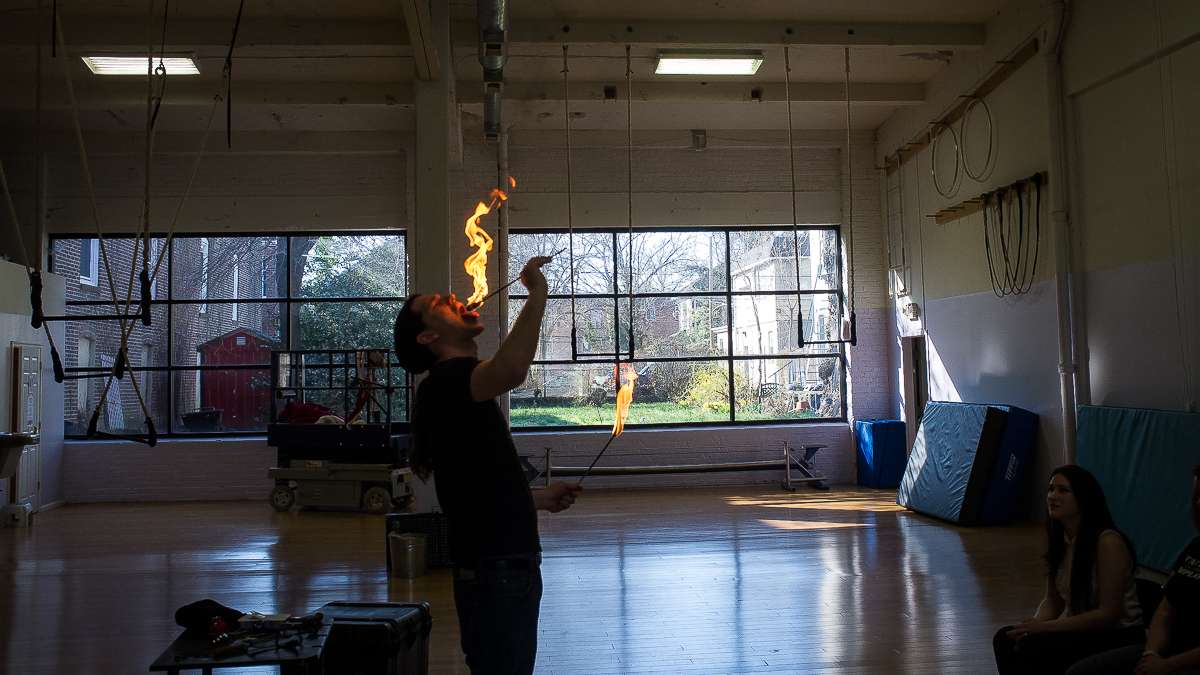How global warming is affecting coqui frogs
Listen-

-

-

Take a look at Alaina Mabaso and Brad Larrison's story on the wild side of circuses. (Brad Larrison/for NewsWorks)
What can the sounds of coqui frog mating calls tell us about climate change?
In 1983, UCLA biology professor Peter Narins stumbled upon a clue in the riddle of global warming.
He was teaching a tropical field biology class in Puerto Rico, when he embarked on an experiment in which he measured the pitch of the mating calls of coqui frogs, as well as their size, at different elevations.
The coqui is named for its mating call—a high-pitch two-note whistle. The “co” note warns off other males and the “qui” note invites females to reproduce.
Narins and his students followed a road that led from the ocean to the top of a local mountain, stopping intermittently to record and measure the coquis before releasing them.
What he found was that as they went up in elevation, the frogs got bigger and their mating calls got slower and lower.
Twenty-three years later, Narins returned and retraced his footsteps up the mountain. He was wondering if the warming of the Earth’s climate in the ensuing years had had any noticeable effects on the coqui and their unique mating call. Guided by the topographical maps he’d used decades prior, he conducted the experiment again, measuring and recording coquis along the road from sea level to 1,000 meters of elevation.
When he returned home he crunched the numbers. The coqui had, in fact, changed. Their mating calls had grown faster and higher in pitch at every altitude, and they were smaller as well. These changes were consistent with a warming environment, and the study became another bullet point in the argument that climate change is real.
For Narins, the changes the coqui has undergone raised some scary questions…
If females aren’t tracking the calls of the males, will they still mate?
And as the frogs get smaller, will this reduced biomass negatively impact all the other living things on the island?
“Coqui is an intimate part of the food web in Puerto Rico,” says Narins, “and this can be disrupted if the biomass is reduced significantly, which it might be, with increasing temperatures.”
WHYY is your source for fact-based, in-depth journalism and information. As a nonprofit organization, we rely on financial support from readers like you. Please give today.

